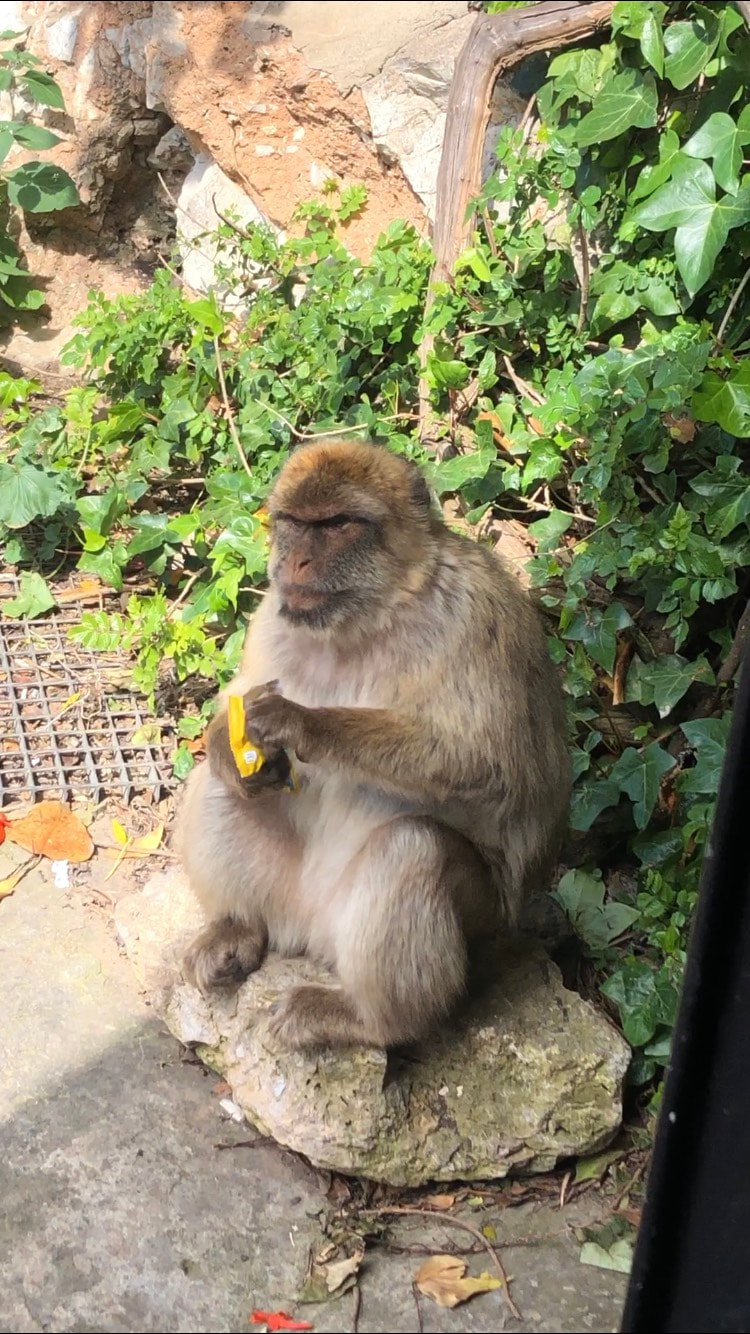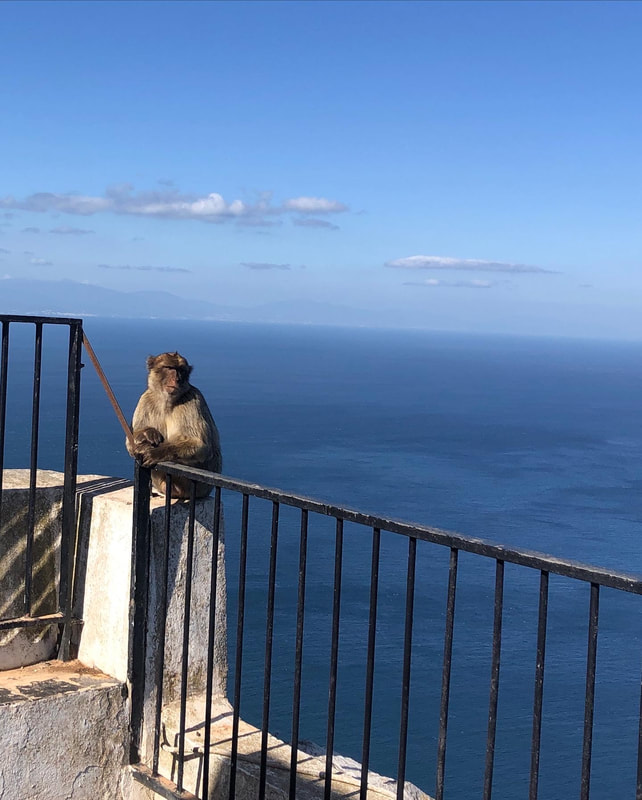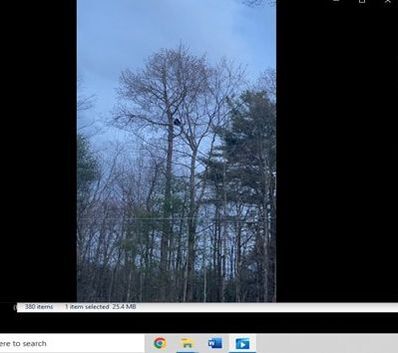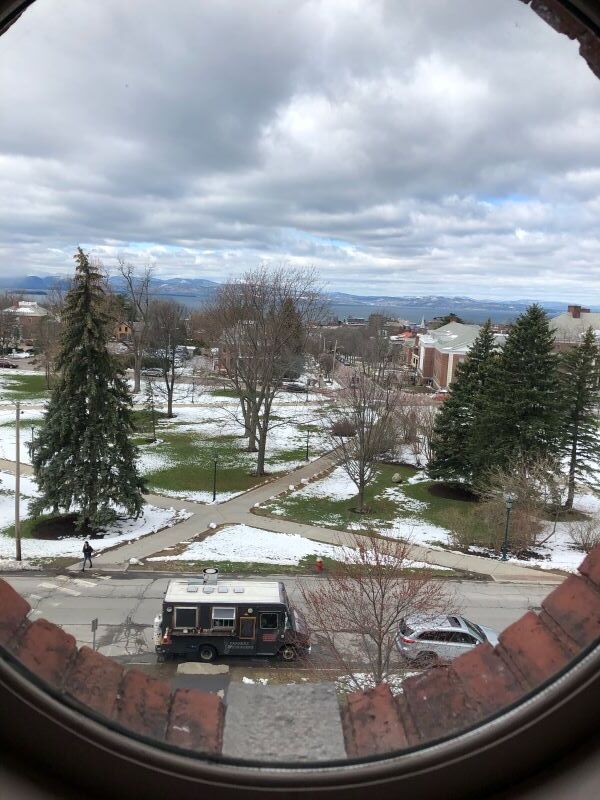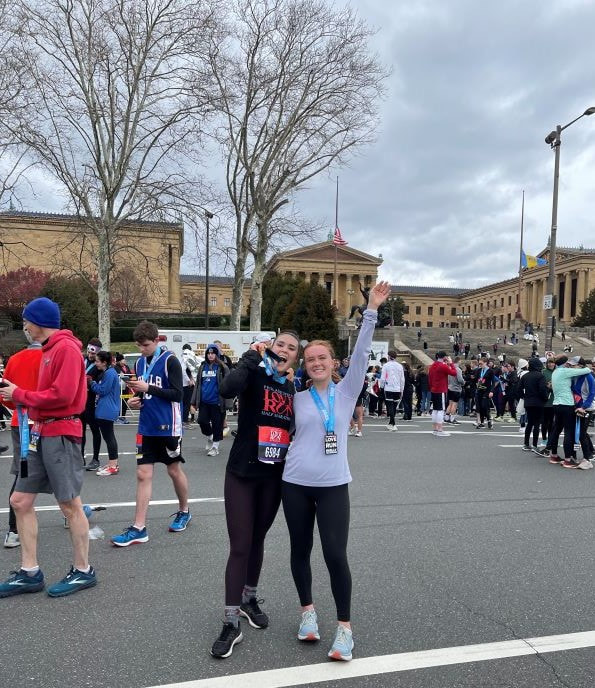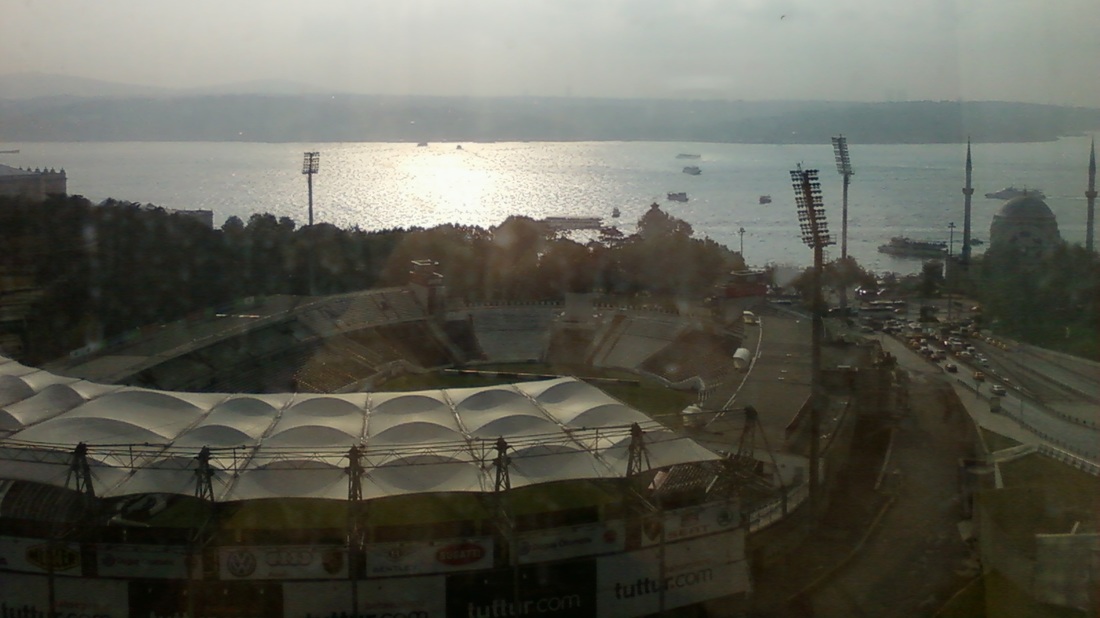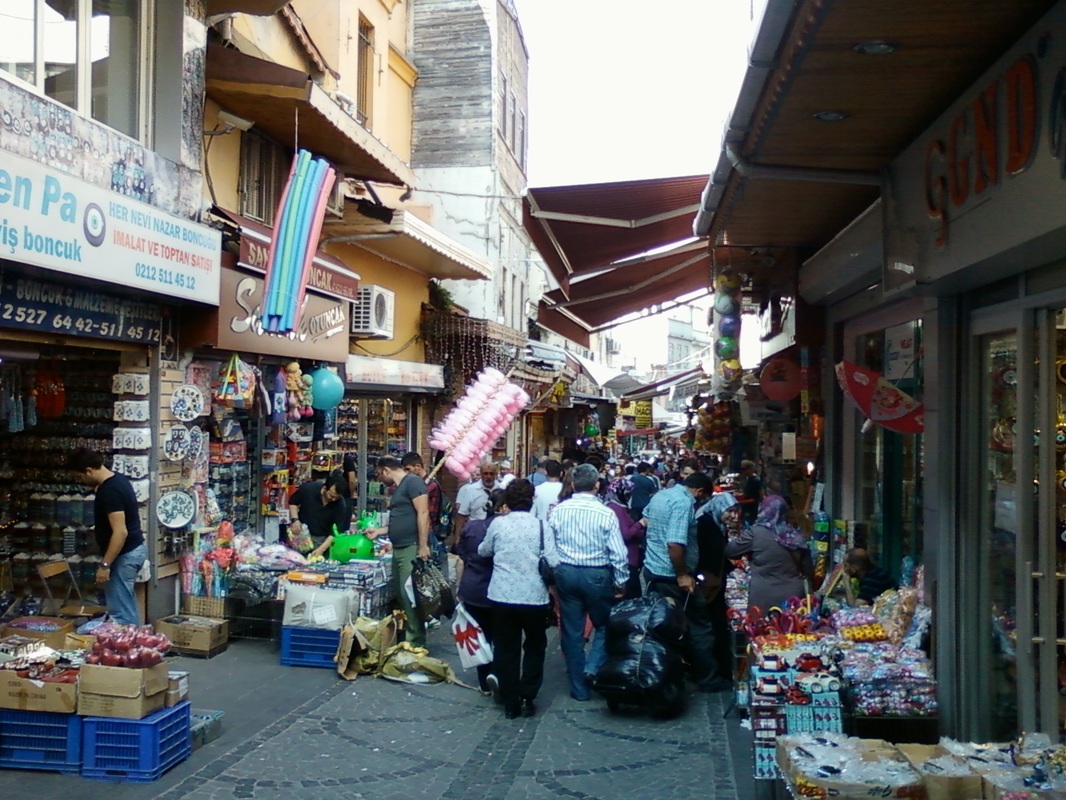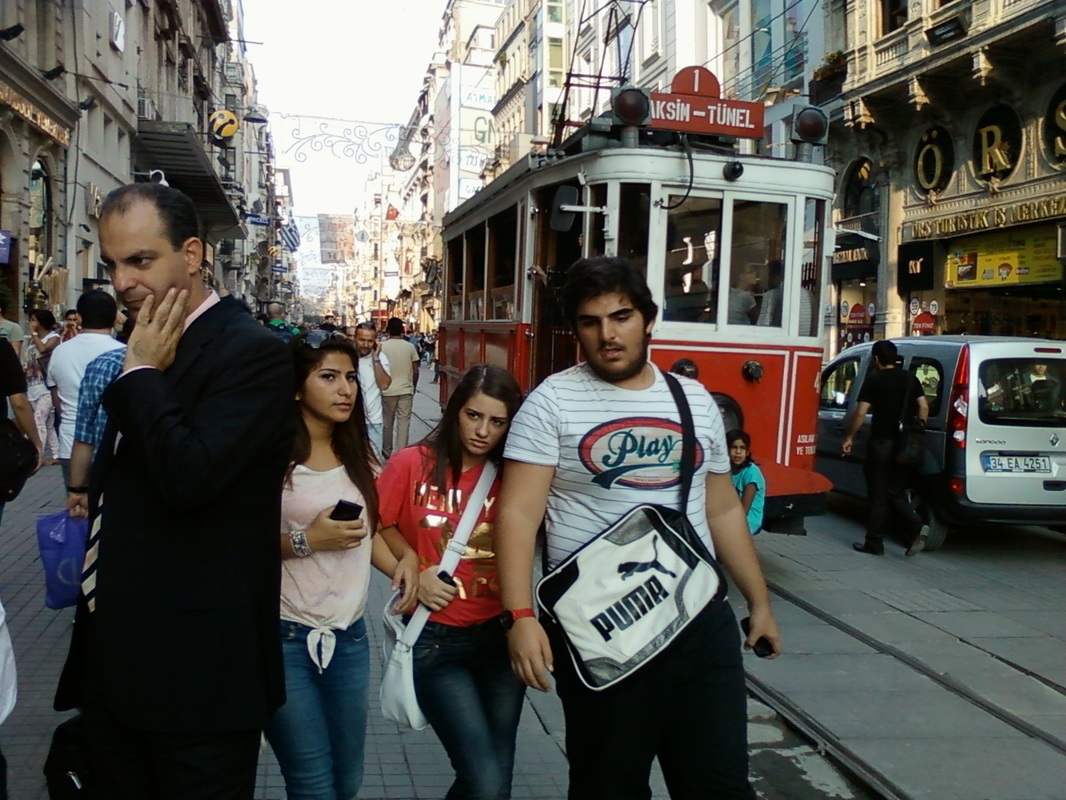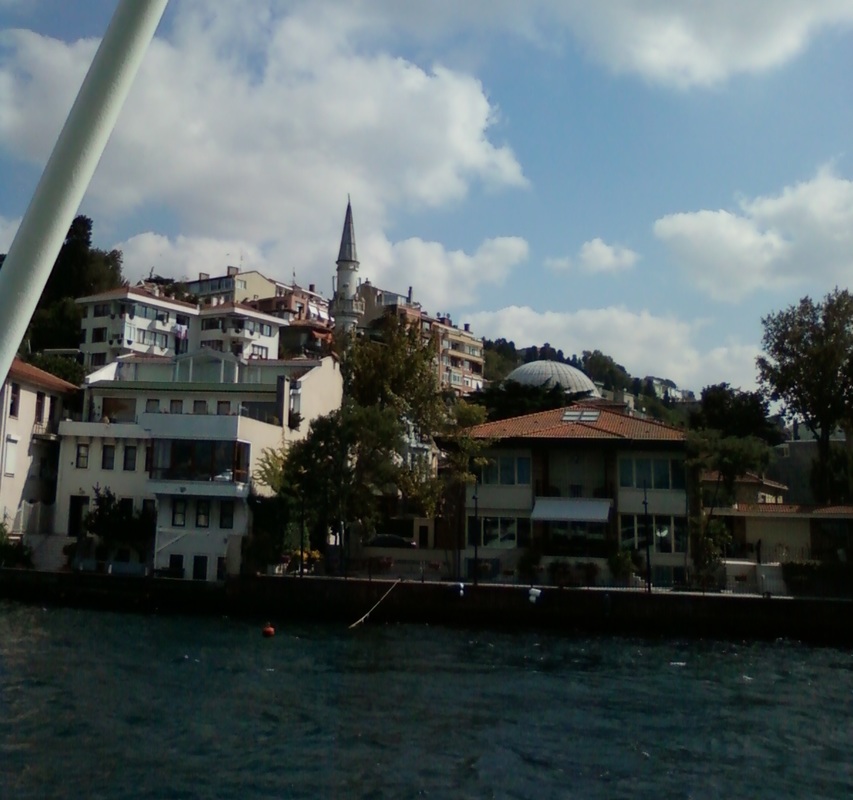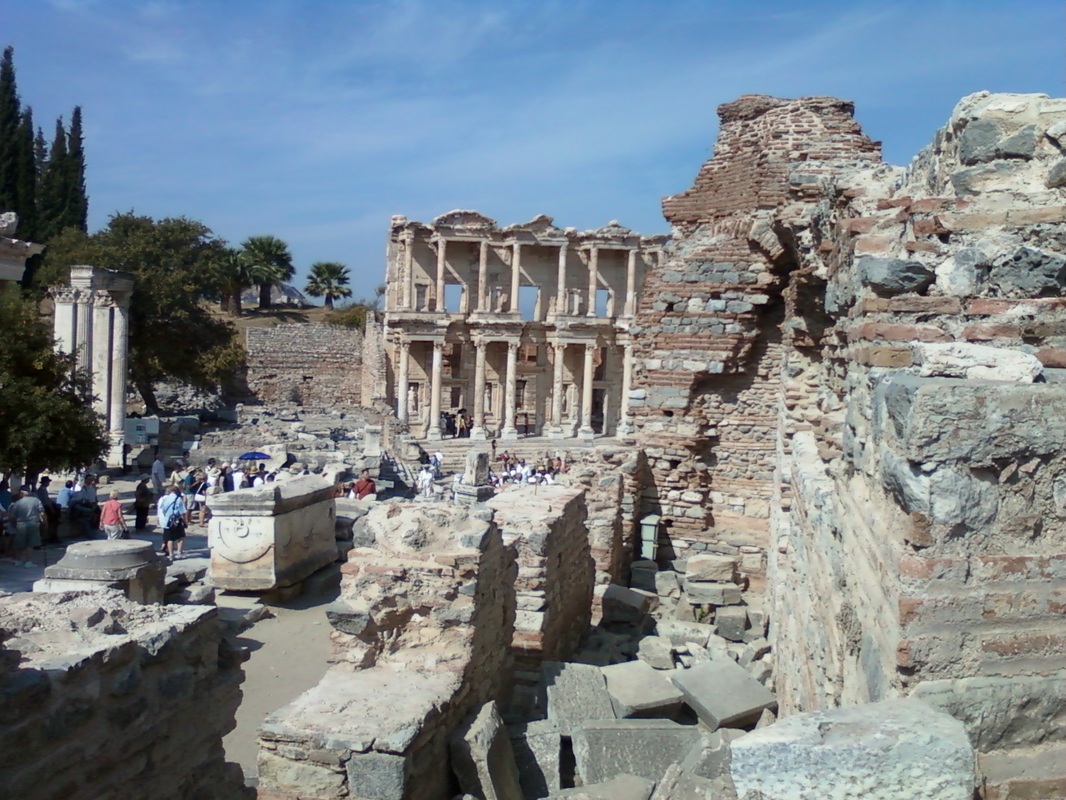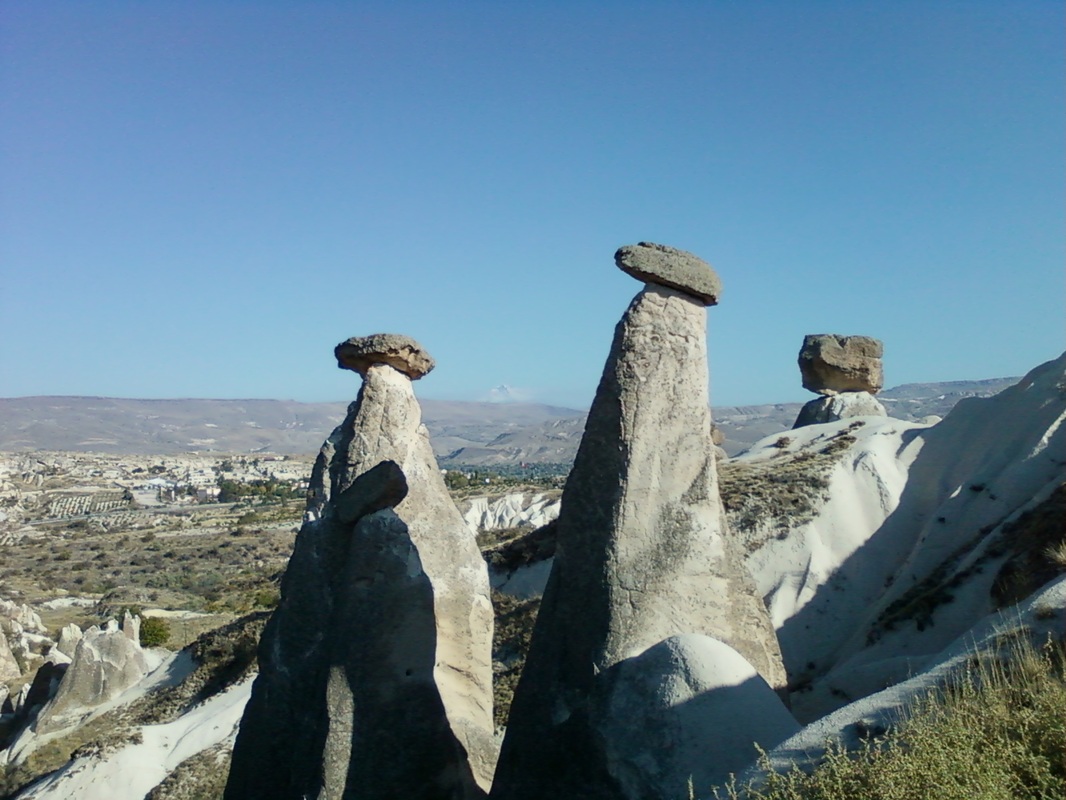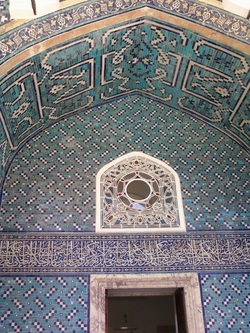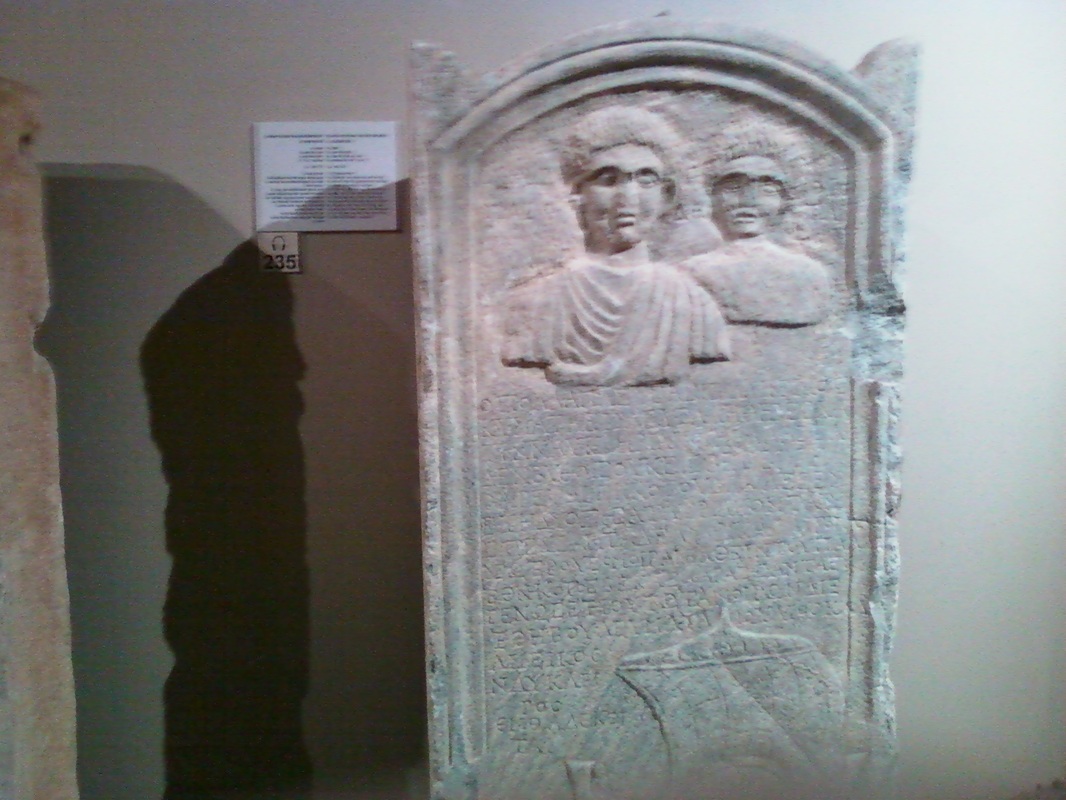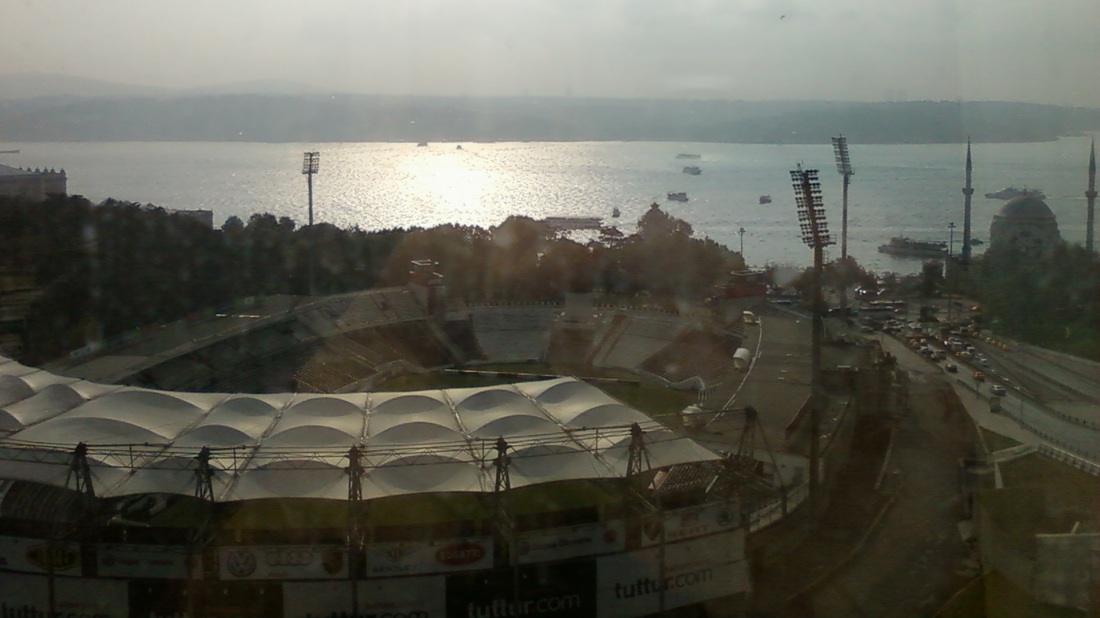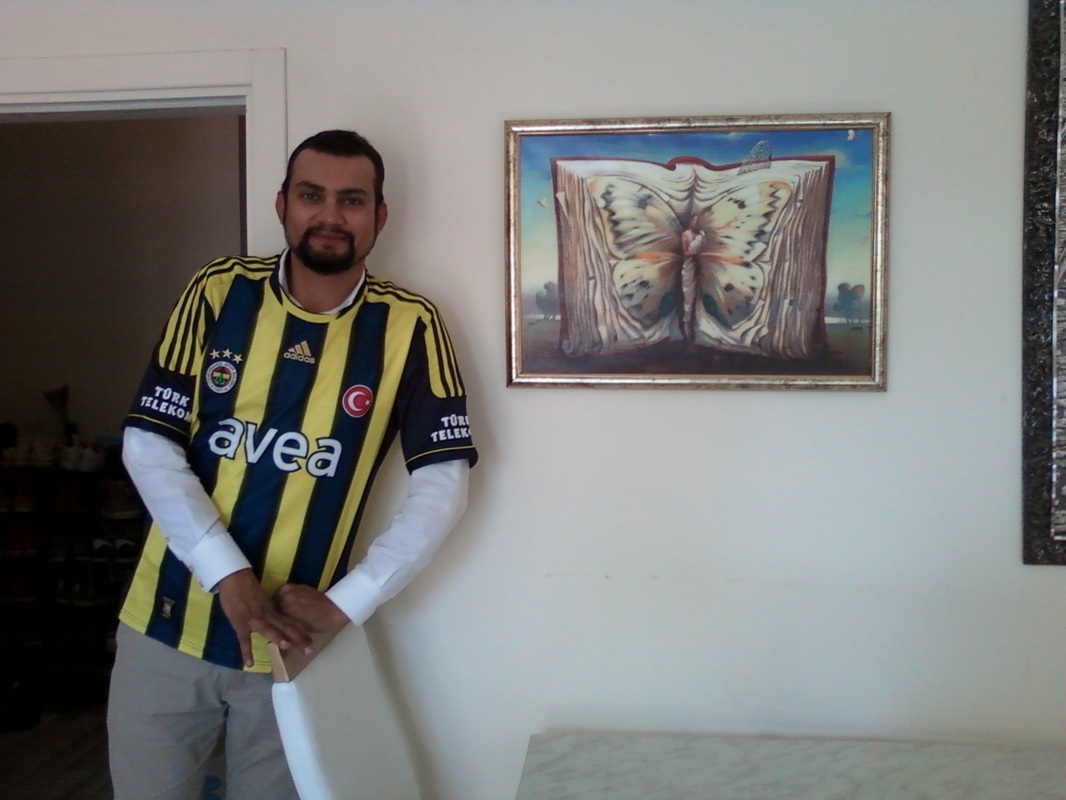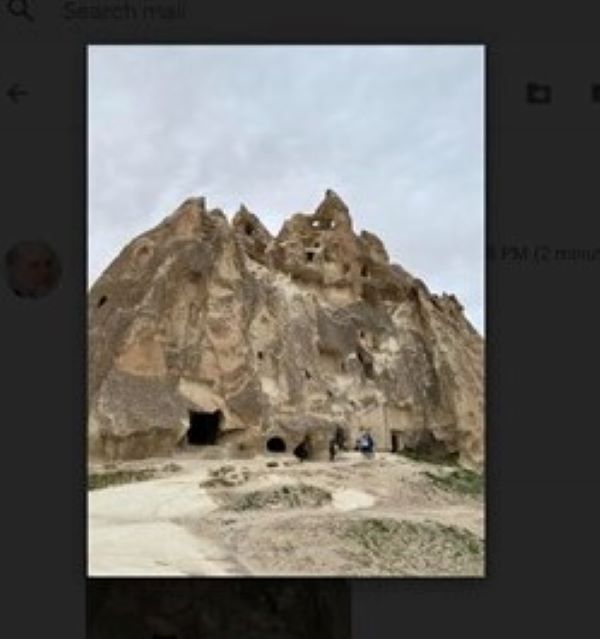 George and two buddies from Pennsylvania are visiting an exchange student pal and his family in Turkey, and getting a great tour. This is the rock formation in Cappadocia, with its ancient catacombs and eerie wind-blasted towers, which George pronounced as "Martian -- beautiful and slightly spooky." We told him we had stayed in the hilltop hotel in our epic visit in 2012, On Wednesday he was at Topkapi and Blue Mosque and Hagia Sofia. We expect a full update when he gets back. Now they got the stadium at Beşiktaş.
Whoever they is. It sat right below our window on the hill near Taksim Square, during our visit. Turkey is one of the most fantastic (in the Orhan Pamuk sense) places in the world. I’m glad we got there in 2012, just before all hell broke loose. Of course, that goes for a lot of places these days. We have seen familiar streets, places we have recently walked, get blown up by nihilists of one persuasion or another. Boston. London. Paris. Nice. Istanbul. The world we knew. The world where people still try to live. The sun comes up over Asia, lights up the Bosporus, shines on Beşiktaş Stadium and our hotel, diligently guarded. The window from which this photo was taken had a little round arrow, pointing south and east, toward Mecca, so tourists could say their prayers. Sitting at my laptop in the mornings, I prayed for people, for cities, for the collective impulse for life that made the streets throb with life, the pungent odors of coffee and kebabs, in all directions off Taksim Square. Now somebody has blown up police officers, there to guard humanity, that is to say, us – to keep fans from rioting, from hurting the innocent. Now blown up. We walked past that stadium every day, downhill, toward the tram that glided to a terrific art museum, to ferries to Uskadar – Asia! – to mosques and cafés and bazaars, the staples of life. Even football is part of life, with its rivalries, its ballet and speed and power and fakery and thuggery. Somebody got Beşiktaş. Struck life itself. Our journalist/scholar family friend in Istanbul writes about the upheaval in her country. Please see:
www.phillymag.com/news/2016/07/19/turkish-coup-philadelphia/ * * * We know Nice. My wife was recalling how she and our daughter Corinna walked that promenade years ago. We always talk with awe about France. Our friend Sam who lives in the Alps says the nihilists hate it because it is beautiful. We also know Istanbul. We went there in the lush fall of 2012. There were rumblings, omens, but also waves of beauty and history and comfort. We walked the hills, took trolleys along the Bosporus, visited mosques, drank coffee. One day we took a ferry to the Princes islands, a leisurely hour north of the city. The main island, Büyükada, was like one of those vanishing bucolic American islands. We bought baked potatoes for takeaway and strolled the streets. On the ride back we passed Yassiada, a smaller, more rugged island. “That’s where they kept political prisoners,” a chatty man told us. We looked it up. A former prime minister, Adnan Menderes, was held on Yassiada before being executed at a more distant island on Sept. 17, 1961. That is apparently the most recent political execution, as Turkey sought its place, straddling Europe and Asia. We visited Asia – Uskadar, with markets and cafes and an admirable book store. We consider Turkey one of the best vacations we have ever taken -- the farms and villas and rolling countryside near Izmir and Ephesus. The other night we watched glimpses of the troubles -- bridges and hills and buildings that looked familiar, but this was no travelogue, not with crowds in the streets, soldiers in the streets, rumors and bullets flying. Will there be new executions in the wake of the attempted coup? Could we once again take that modern T1 tram line from Kabataş to Bağcılar, gliding through neighborhoods, chatting as we did with a nice Jordanian couple? More important, for the people who live there, can that great city endure, with one foot in each world? We sit home and grieve for the great places. We questioned friends who had visited Turkey and almost unanimously they said they loved the country. Then we asked about side trips out of Istanbul and almost unanimously they said – Ephesus and Cappadocia. We followed their advice.
When Paul visited Ephesus it was a Greek city occupied by Romans. His boat would have sailed right to the edge of the largest city in the region, at one point containing 200,000 inhabitants. Through the power of silt and time, the former port is now a full five miles from the Aegean, but the marvels of Ephesus endure. Greeks built the massive amphitheatre that holds 20,000 people. Elton John sang Rocket Man here. But who carved the menorah into stone in front of the library whose façade looms impressively along the main street? Nobody knows. Our guide, a charming woman named Dilek Aydeniz, said there was a secluded passageway from the library to the brothel across the way. A man could tell his wife he was going to check out a book and slip into the brothel, coins in hand. Dilek took us to the terrace homes that once housed elite Roman administrators -- high rises, state of the art, with setback floors that let in light to many of the chambers. We climbed what felt like six stories of hard stone steps. Each apartment had running water and stanchions for candles. In one secluded corner was a lavatory – a 40-seater. In Ephesus, there are traces of Biblical figures – Paul and John, so intent on evangelizing that they became a threat to the silversmiths as well as Roman officials. Mary, the mother of Jesus Christ, is said to have lived her final years here, perhaps in the modest home on Nightingale Hill that attracts so many pilgrims, including Muslims who honor her as Meryem. I thought about the elderly Jewish woman, protected by her dead son’s followers, safer here than she would have been in her homeland. We drove to Selçuk, a pleasant town whose name originates from the Seljuk Turks who emigrated from the east. Men played a card game called okey in the cafes. We saw the basilica of St. John, named after the apostle who preached here. In the center of town, we stopped below a rampart of the old Roman aqueduct, some of whose graceful arches are still standing. Atop this column is the large nest of a stork, now migrated southward. The storks are venerated because they are monogamous and industrious, our guide said; they also carry rats and snakes to the nest to feed their young, and sometimes drop their prey onto pedestrians in the bustling streets. Selçuk was alive with commerce and Ephesus quivered with memories. What was missing was the salt air and glitter of the sea. We went to Cappadocia the easy way – by flying from Izmir to Istanbul, resting overnight, and flying to Kayseri the next day. (Turkish Airlines is very good, and serves cherry juice on domestic flights.) I know people who have taken the 10-hour bus ride between Ephesus and Cappadocia; but we were not up for that. Cappadocia is a region carved by wind and rain and snow and ancient volcanoes; amazing natural obelisks point toward the sky, with top-heavy caps of volcanic ash teetering above them. I cannot describe the fantasy landscape; please check out sites and photos on the web. Time and humans have created and enlarged caves into the porous hills. Our guide, Gökhan Yaramis, told us how ancient Christians spent much of their lives underground, cooking and surviving and witnessing their faith with rudimentary paint on the cave walls. One day Gökhan took us to a charming restaurant, Kavi, in Avanos, under a canopy alongside the Red River, with its thick layer of shade trees, with a view of a bridge and a mosque. The next day he took us to the university town of Mustafapaşa, a Greek city until the changes of the 1920’s. A traveler could spend a lot of time around Cappadocia. October is brilliant. We went high-end, I admit it, with a guide and driver, expertly arranged by Karin Paquay, a multilingual Belgian executive, and her helpful colleagues at Destination Management Turkey (DMT) based in Istanbul, In Cappadocia we splurged for a view from the expensive CCR Hotel in Uchisar, dug into ancient mountainside caves. (Oddly enough, cave hotels have very dark rooms.) Other tourists were backpacking it. The main thing is to go in your own fashion. Our friends who gushed about Ephesus and Cappadocia were absolutely right. How could we have waited so long to visit Turkey?
My overall impression of Istanbul was of overlapping cultures and tastes, centuries of civilizations. We were touched by amplified prayers wafting through this huge city, summoning worshippers to the mosques at mid-day.The windowsill in our hotel had a tiny sticker with an arrow pointing toward Mecca, making it easier for travelers to pray. At the same time, life went on, with people dressing and apparently living their varied fashions. We love cities. We took trams and ferries the way we take the subway or commuter train in New York. We found succulent small plates of appetizers -- mezze -- everywhere, but I have to say, our best meal was at the Istanbul Museum of Modern Art, a great airy space alongside the Bosphorus, with stimulating contemporary exhibitions. And I found a great bookstore near the ferry in Kadikoy, with soccer books by Franklin Foer and Simon Kuper, translated into Turkish. One thing I did not do was take an anotated walk around the neighborhood featured in My Name Is Red, the compelling novel by Orhan Pamuk (please enjoy the Updike review from 2001), which takes place near the Galata Tower. Next time. For sheer reading pleasure, please enjoy the current essay by Pamuk on the drying-up of the Bosphorus. , We went to the Istanbul Archaeological Museum, expecting history and we encountered something close to literature. One stele, or marker, contained a tribute to a Roman captain, Iulius Callineicos, from the third century, C.E. “Greetings passerby! Callineicos, you have set sail to the limits of Lethe (the mythical river of forgetfulness), having survived many fierce tempests. Still the sea did not swallow you in its depths, [but] the earth has wiped you from the face of the earth, you who wanted to take after your brother Calligonos, who left long ago from the face of the earth. The decision of the Fates (Moirae) was thus: Here lies Iulius Callineicos, captain.” Callineicos was sent by one great civilization; his service is still noted in the heart of another great civilization. My wife once flew over Istanbul and ever since then she has yearned to go there. Last week we did.
There are dozens of wonderful things to say about Turkey (and I probably will) but first I need to talk about the frustration for a soccer freak of looking down from a hotel window directly into a soccer stadium -- with no game going on. Hundreds of ferries and freighters and tugs were moving up and down the Bosphorus as we stared into the beginnings of Asia, but in seven days and seven nights I never spotted a single person moving on the lush lawn of Beşiktaş, one of three Super-division teams in Turkey. One Sunday there was an Istanbul derby at Fenerbahçe, a main rival, based across the Bosphorus, essentially on another continent. As a foreigner, you could try going there, somebody advised me, but nobody from Beşiktaş is allowed to travel to Fenerbahçe, and nobody from Fenerbahçe is allowed to attend a match at Beşiktaş. The trip involved a 20-minute ferry ride and a 40-minute walk, but there was too much else to do in this amazing city of mosques and museums, ferries and restaurants, hills and water views. Soccer was in the news. Fenerbahçe was firing its star Brazilian, Alex, for unknown offenses. He had been there seven years, a long stay for any international import, but the owner wanted him gone, and now he was. Soccer always makes friends. Turks reminded me that Brad Friedel, the durable American keeper, spent a formative time with Galatasaray, the other Istanbul powerhouse. I told Turkish fans how I had covered the 2002 World Cup, when Turkey made its best showing ever, finishing third. People nodded reverently when I praised the great act of sportsmanship, after beating the spirited Reds of South Korea, 3-2, in the consolation match, how the Turkish players invited the Koreans to take a victory lap with them. But that was a long time ago. Now Turkey is in danger of not qualifying for the 2014 World Cup. One day in the amazing Cappadocia Region (with its unique geological formations and cave dwellings) we were eating in the celebrated Old Greek House in Mustafapaşa, where the popular soap opera Asmali Konak was filmed. Our guide, Gökhan Yaramis, a tall former college basketball player – and a Fenerbahçe man – was joined by his fellow guide Emre Ardik, a Trabzonspor man. Gökhan and Emre are buddies, who once spent nearly 24 hours driving in a snowstorm to watch their teams in Trabzon, alongside the Black Sea. “We want our cup!” Emre told me with passion. A year ago Fenerbahçe was implicated in a game-fixing scandal and was bounced from the Champions League. Sounds like Juventus, the perennial king of the 89th-minute penalty kick, amazing coincidences Sunday after Sunday, decade after decade. Gökhan never argued. Apparently, the punishment stood on its own. He’s a great guy, an educated guide who could respectfully tell us the history of Christians who lived in caves to avoid the Romans, and could also tell us of the Muslim faith that reached the region centuries later. Later he invited us to his lovely apartment in a pleasant town, so we would know more about Turkish life. Gökhan put on his yellow and navy blue vertical striped jersey – and displayed his matching yellow sneakers – his gamer outfit, for watching matches. On Tuesday he would watch the qualifying match on the huge screen in the town square, as Turkey would score first against Hungary, but then lose, 3-1. By that time, my wife and were flying home. There is so much to remember about Turkey; I will always check the soccer scores. |
Categories
All
|
